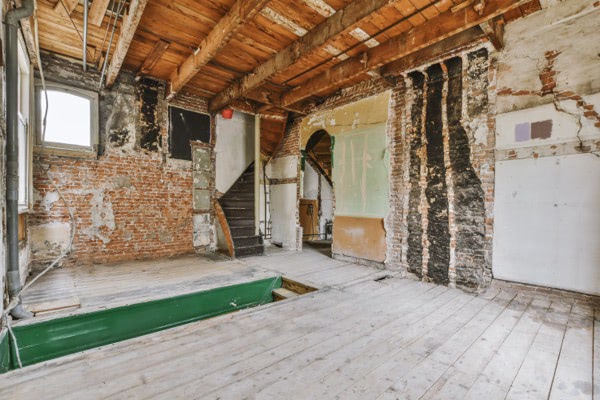Cottage opening weekend is almost here! In this post, we discuss how best to prepare your cottage for summer.

Is a fixer-upper a smart purchase for you?
Are you thinking about buying a fixer-upper? This is a path that appeals to home buyers who are interested in purchasing a lower-priced property, then taking on major renovations to bring the home back to life. It allows you to enter the market and become a home owner sooner, but it also comes with high costs in the form of improvements and repairs. If you’re wondering whether you’re a good fit for this type of purchase, here are some key areas to consider.
Consider the market conditions
People often purchase fixer-uppers for a couple specific reasons. They either want to become home owners sooner by buying a less expensive property, they want to earn passive income by renting the home out, and/or they want to customize the home from top to bottom. In any case, real estate market conditions will have a deep impact on your actions.
If you are buying a fixer-upper in the hopes of securing property at a lower price, you want to enter the market at a time when prices reflect the home’s value. For example, during periods of extremely high demand, home prices tend to skyrocket. You do not want to buy a fixer-upper during a time when it is priced far beyond its worth. Instead, it’s better to buy during conditions that are balanced, or that favour the buyer.
Are you hoping to buy a second property to rent out as an investment? You should ensure the demand for rentals is high. With all the work you will be putting into buying and renovating the house, you will need renters to help you recover those costs and start earning money. Buying in an area of high demand, or low supply, is essential. There are always risks associated with rental properties, but you can alleviate some of these with a smart purchasing plan.
Overestimate the costs of renovations
One thing is for certain when you buy a fixer-upper, and that is the costs of renovations will be high. While you may have purchased the home at a cheaper price, this comes at the expense of actually fixing it up. Of course, the exact costs will be different for each property. It depends on the age and condition of the home, and whether you are facing repairs, replacements, or a complete house gutting. Odds are your home inspection revealed the most important issues, whether that involves plumbing, pest control, electrical issues, foundational concerns, mold and asbestos removal, or any other problem with the home.
If you hope to save money on a fixer-upper compared to a move-in ready property, you need to budget wisely. Costs add up quickly, and you need to ensure you can afford whatever work the property needs. It’s important to know where you can save, and where you should soak up the cost. For example, you might be able to skip the painters if you can handle painting the home by yourself. However, you should not try to dodge the need for licensed contractors such as electricians, plumbers, and carpenters.
However much you expect to spend on this project, add a little more on top. People almost always overspend on these types of projects due to unexpected expenses that will naturally pop up. Be sure to have some backup savings ready so your wallet doesn’t take a hit down the road.
Prepare for delays and setbacks
No matter how prepared you are, your renovations will run into delays. This is inevitable given the number of contractors that need to schedule in their work, the potential for shipping delays on important items, and the sheer unpredictability of such a major project. You might run into issues you didn’t even know existed, and now these need to be included in the repairs as well. The teams you work with will give you the best estimates they can. However, it’s important to not set these timelines in stone in your mind.
If you plan to eventually live in your fixer-upper home, be sure to have alternate and flexible living arrangements. You likely won’t be able to live in the home during this work, given how much will likely need to be addressed. Since you also can’t be certain how long the work will take, you should have some freedom in terms of how long you can stay in your alternative living setup. If you are renting a property, for example, make sure your lease stretches beyond your estimated date of departure, and that you have the option to extend your stay if needed.
Anticipate a more complicated approval process
Securing a mortgage for a fixer-upper is likely going to be a challenge. Your main obstacle is that a traditional lender will not finance a mortgage for more than its market value. Unfortunately, the current value of the home will be much lower than its future value after you complete its transformation. A traditional lender may be willing to provide you with a mortgage that equals the home’s present value, but this means you will need to cover any remaining costs yourself. Alternatively, you can turn to a private lender, who are generally more flexible and more open to financing a fixer-upper. However, keep in mind that these lenders tend to come with much higher interest rates.
Buying a fixer-upper can be a smart purchase. However, it heavily depends on the property itself, market conditions, and your own preferences. You need to prepare for high renovation costs, unpredictable schedules, and alternate mortgage financing options. Think this is the right path for you? Make your journey smoother by getting in touch with your local mortgage broker! We can ensure you have the knowledge and tools you need to get the job done properly.
If you have any questions about your mortgage, give us a call at Centum Home Lenders! You can reach us at 506-854-6847, or get in touch with us here.


